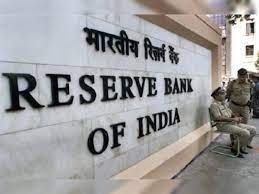RBI Announces Revised Eligibility Norms for Urban Co-operative Banks (UCBs): Inclusion in Second Schedule
The Reserve Bank of India (RBI) has recently declared revised eligibility norms for Urban Co-operative Banks (UCBs), paving the way for their inclusion in the Second Schedule. This significant move holds paramount importance for aspirants preparing for government exams, especially those eyeing positions in banking and finance sectors. In this article, we will delve into the key details of this development and its implications for candidates aspiring to join the banking sector, shedding light on why this news is pivotal, its historical context, and the crucial takeaways for exam preparation.

Why this News is Important:
1. Strengthening the Banking Sector:
The move is aimed at fortifying the urban co-operative banking sector, ensuring robustness and adherence to updated norms. This is a positive step towards maintaining the stability and reliability of financial institutions.
2. Inclusive Growth and Economic Stability:
By including UCBs in the Second Schedule, the RBI promotes inclusive growth, fostering economic stability. This aligns with the broader national agenda of creating a financially inclusive environment.
3. Impact on Government Exams:
Aspirants preparing for government exams, especially those targeting banking positions, need to stay abreast of such regulatory changes. The revised eligibility norms may become a crucial topic in upcoming examinations.
Historical Context:
To understand the significance of this announcement, it’s essential to explore the historical context of urban co-operative banks and their regulatory framework.
The concept of UCBs traces back to the early 20th century, with the first UCB established in 1907. Over the years, these banks have played a crucial role in catering to the financial needs of urban and semi-urban areas. However, regulatory frameworks have evolved to address emerging challenges and ensure the stability of the banking sector.
Key Takeaways from This News:
| Serial Number | Key Takeaway |
|---|---|
| 1. | Inclusion in the Second Schedule enhances credibility. |
| 2. | Focus on strengthening co-operative banks for stability. |
| 3. | Implications for banking sector aspirants in exams. |
| 4. | Aligns with the broader goal of financial inclusion. |
| 5. | Reflects ongoing efforts to adapt to changing landscapes. |
Important FAQs for Students from this News
Q1: What are the revised eligibility norms announced by the RBI for Urban Co-operative Banks (UCBs)?
A1: The RBI has introduced updated eligibility norms to strengthen UCBs, facilitating their inclusion in the Second Schedule.
Q2: How does the inclusion of UCBs in the Second Schedule impact the banking sector?
A2: The inclusion enhances the credibility of UCBs, contributing to the stability of the banking sector and fostering inclusive economic growth.
Q3: Why is this news significant for government exam aspirants, especially in the banking sector?
A3: Aspirants need to be aware of regulatory changes, and this news might become a crucial topic in upcoming examinations, particularly those related to banking positions.
Q4: What is the historical context of urban co-operative banks in India?
A4: Urban co-operative banks have a history dating back to the early 20th century, playing a vital role in catering to the financial needs of urban and semi-urban areas.
Q5: How does the announcement align with the broader goal of financial inclusion?
A5: The RBI’s move aligns with the national agenda of creating a financially inclusive environment, promoting economic stability through inclusive growth.
Some Important Current Affairs Links

















